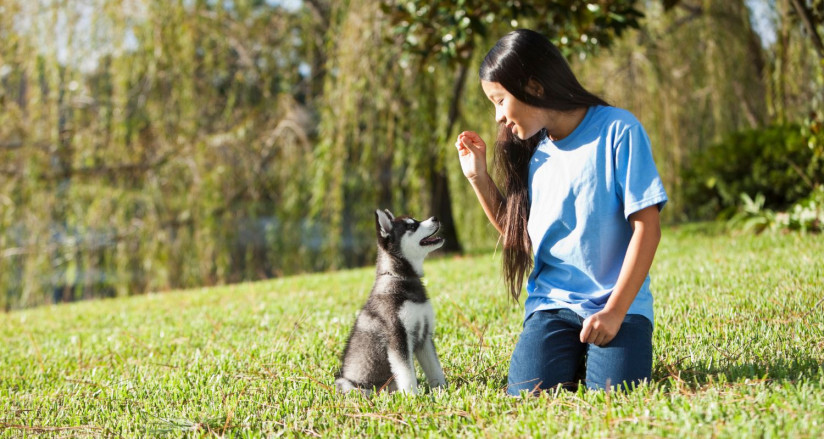Here's What to Consider Before You Get a Puppy
Puppies may be adorable bundles of joy, but they are also a significant responsibility. They require more time and attention for housetraining, socialization, feeding, and entertainment than adult dogs – not a commitment to be taken lightly. There’s no one-size-fits-all solution when considering whether to get a puppy, but experience has taught us to evaluate the following factors before making the big decision.
Your Lifestyle
The type of dog you get should fit your living situation and lifestyle. For example, if you are active and outgoing, with a large home, yard, or nearby park, you may be a good candidate for a larger breed. If you live in an apartment or condo, have young children, or are the owner of other small pets, a smaller dog might be the best choice.
What is your family life like? Are you expecting a baby? If so, ask yourself if you will have the time and energy to devote to a baby and a puppy. If you already have a family, which breed will fit best with their lifestyle? It is not a given that all dogs love kids – especially small children, who can unintentionally annoy a dog.
The Dog Breed
- Breed. Different breeds tend to display certain personality traits and physical characteristics, so it’s important to find a good fit. While breed does not predict a dog’s personality, genetics can play a large part in your dog’s attitude, health, behavior, and intelligence.
- Temperament. Temperament has more to do with a dog’s innate characteristics than their breed, size, or upbringing. It helps determine how easily a dog can be trained – an important factor to consider because good training can improve certain traits, but will not change a dog’s temperament.
- Energy. Your activity level matters. Many dogs require long daily walks. If you’re not able to meet that requirement, the last thing you’ll want is a high-energy breed. Instead, consider a breed that is happy relaxing on the couch.
- Purpose. Different breeds have been bred for generations to perform specific tasks. Watchdogs guard, retrievers fetch, hounds track, and pointers sniff out birds; meanwhile, companion dogs tend to be more social and people-oriented.
- Allergies. No one enjoys constant sneezing, runny noses, and itchy eyes. Some breeds are better than others for allergy sufferers.
Your Experience with Dogs
Certain breeds may be tougher than others to train and handle. First-time dog owners should choose more sociable and les dominant, stubborn breeds, such as Labradors or Golden Retrievers.
Do you have other dogs at home? Not all sexes or breeds get along well with others. Two neutered male dogs can cohabitate quite nicely if their dog parents treat them as equals, but rivalries begin when they are treated differently. A male and a female of equal energy levels can get along together – and could even be the best match – if they are of equal size. If one is larger, it should be the male, and the female should be spayed. Two females can make a problematic pair – females inevitably want to run the household, and it won’t be long before they test each other.
Related Articles
Looking for additional information? Take a look at these related articles:
- General Puppy Tips
- Bringing Home a Puppy
- Toilet Training Basics
- Tips for Every Dog - Four Basic Needs
Featured Breeds
Learn more about different dog breeds by checking out our featured breeds articles.
